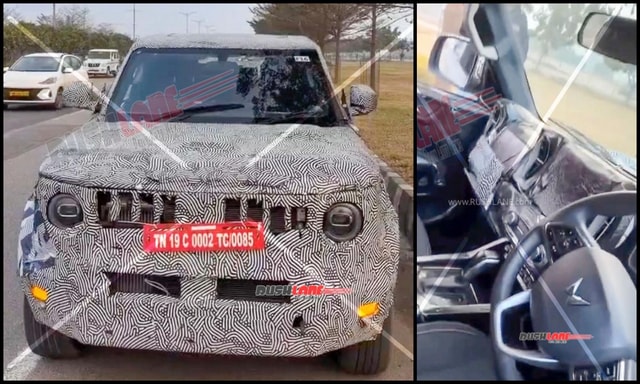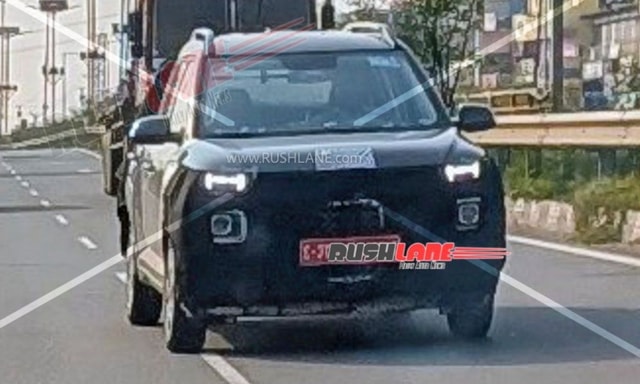Takata Bankruptcy Would Cloud Auto Industry's Biggest Recall

- Japanese air-bag supplier may run out of cash to replace parts
- Honda, Toyota and other companies face possible recall costs
- Car companies have already shifted business away from Takata
The Japan-based auto supplier has pledged to recall and replace tens of millions of defective air-bag inflators used by 19 car and truck makers around the world, from Tesla Inc. to Toyota Motor Corp. A filing to restructure in U.S. bankruptcy court, which could come as early as Monday according to people familiar with the matter, doesn't relieve a manufacturer of recall responsibilities. However, should its financial assets be exhausted before all the work is done, carmakers may have to cover the difference.
U.S. bankruptcy laws permit a would-be buyer to acquire Takata's desirable assets, but not necessarily assume unwanted liabilities -- including recall obligations, according to Robert Rasmussen, a University of Southern California law professor specializing in corporate reorganizations.
Funds raised by an asset sale would go toward funding Takata's production of replacement parts, Rasmussen said. U.S. law treats a manufacturer's recall obligations in bankruptcy as a claim of the U.S. government and they receive priority "to ensure that consumers are adequately protected from any safety defect" in a manufacturer's products, according to statute.
"The big risk," Rasmussen said, "is how much are the assets worth versus what's the cost to do the replacements."
Scott Upham, president of Valient Market Research, estimates that automakers and suppliers globally face $5 billion in future costs tied to the recalls, about $2 billion of which can be tied to Takata. He estimates a Takata asset sale will generate about $1.5 billion to $2 billion.
"There's not enough money," Upham said. Automakers may have to cover any shortfall, he said.
The car companies have already shifted business away from Takata and toward rivals for about 70 percent of the parts to repair the millions of vehicles recalled for the company's defective airbag inflators, which can explode with too much force and spray drivers and passengers with metal and plastic shards. That should assure enough new inflators for the estimated 100 million defective ones forecast to be replaced worldwide.
Only 38 percent of the 43 million air bag inflators under recall in the U.S. had been repaired as of May 26, according to data on the U.S. Department of Transportation's National Highway Traffic Safety Administration website. In Japan, 73 percent of the close to 19 million air bags under recall have been repaired, a spokesman at the country's transport ministry said this month.
At least 17 deaths have been linked to the devices worldwide. Mounting liabilities associated with the faulty airbags have forced Takata to seek a buyer that would see it through a costly restructuring process. A Takata steering committee has recommended Key Safety Systems Inc. -- the U.S. air-bag maker owned by China's Ningbo Joyson Electronic Corp. -- as the preferred bidder, and bankruptcy filings would bring the Japanese company a step closer to a sale.
The challenges for the acquirer are manifold. Takata posted its third-straight annual loss even without including the full costs of repairing millions of air bags, which automakers are now paying for. It faces a talent exodus and auto industry distrust.
"It would be hard for Key Safety Systems to put in huge amounts of money if there's no guarantee against unexpected liabilities, after any deal," said Mitsuhiro Harada, a researcher at Tokyo Shoko Research. "Takata is making money in non-airbag operations, so if they can drastically cut recall-related debt through bankruptcy, they can surely revive soon."
Automakers have avoided supply disruptions by sourcing replacement parts from Takata competitors Autoliv Inc., ZF-TRW and Daicel Corp. Autoliv, for example, has already provided 15 million replacement inflators and has orders for another 15 million into 2019, company spokesman Thomas Jonsson said.
"We are working with suppliers to ensure a steady supply of replacement inflators for our customers," said Kelly Stefanich, a Toyota spokeswoman in Princeton, Indiana. "We don't anticipate any supply disruptions at this time." Honda Chief Executive Officer Takahiro Hachigo said at a June 16 media briefing that the automaker hasn't heard any specifics about the Takata bankruptcy plan.
The Japanese government has said it's focused on completing the recall process and ensuring there's no disruption of the supply chain.
In the U.S., NHTSA has been coordinating the pace of recalls and the flow of parts under a legally-binding 2015 agreement with Takata and 19 companies. That pact, NHTSA said, "is designed to deal with future contingencies, including the possibility of additional recalls, new information about the cause of the ruptures, or interruptions in the supply of replacement inflators."
"The automakers, the government, Key Safety Systems and Takata will come to an agreement to keep supplies flowing," Upham said. "The No. 1 priority is the safety of the driving public, and I think everybody realizes that."
Honda first started recalling Accord and Civic models in 2008 due to the flaw that may end up being Takata's undoing. The supplier's inflators use ammonium nitrate propellant that can be rendered unstable after long-term exposure to heat and humidity. That same year, Takata began adding a drying agent to its propellant formula in an attempt to fix the problem. It has until the end of 2019 to prove to U.S. regulators that those air bags are safe.
Honda now uses no Takata-sourced inflators for recall repairs in the U.S., and none of the company's new vehicles in mass production worldwide use Takata inflators with ammonium nitrate propellant, said Chris Martin, a Honda spokesman in the U.S..
Opting for bankruptcy protection in Japan and the U.S., as opposed to a court-led restructuring, should ensure there's "minimum negative impact to the airbag supply chain for automakers," said Takeshi Miyao, an analyst at Tokyo-based market researcher Carnorama. He predicts the procedure would take two months in a best-case scenario, but would more likely need half a year.
(This story has not been edited by NDTV staff and is auto-generated from a syndicated feed.)
Latest News
- Jaiveer Mehra | Jan 30, 2026Jeep India Confirms ‘First Model of Future Lineup’ To Arrive In 2027: What Could It Be?The SUV maker confirmed its first all-new model for India since 2022.1 min read
 Jaiveer Mehra | Jan 30, 2026New Bentley Continental GT S Debuts As Sportier Alternative To Standard CGTThe GT S shaves the 0-100 kmph time down from 3.7 seconds to 3.5 seconds despite not offering any additional power.1 min read
Jaiveer Mehra | Jan 30, 2026New Bentley Continental GT S Debuts As Sportier Alternative To Standard CGTThe GT S shaves the 0-100 kmph time down from 3.7 seconds to 3.5 seconds despite not offering any additional power.1 min read Jaiveer Mehra | Jan 29, 2026Tesla Model S, Model X Production To End By Mid-2026Company CEO Elon Musk made the announcement during the company’s Q4 2025 earnings call.3 mins read
Jaiveer Mehra | Jan 29, 2026Tesla Model S, Model X Production To End By Mid-2026Company CEO Elon Musk made the announcement during the company’s Q4 2025 earnings call.3 mins read car&bike Team | Jan 29, 2026Mahindra Vision S SUV Interior Spied For The First TimeTest mules of the boxy SUV were initially spotted on public roads in mid 2025, with the concept debuting in August.1 min read
car&bike Team | Jan 29, 2026Mahindra Vision S SUV Interior Spied For The First TimeTest mules of the boxy SUV were initially spotted on public roads in mid 2025, with the concept debuting in August.1 min read car&bike Team | Jan 29, 2026Hyundai Exter Facelift Spied Testing Ahead Of India DebutUpdated Exter is expected to make its debut later in the year as Hyundai will look to better compete with the Punch.1 min read
car&bike Team | Jan 29, 2026Hyundai Exter Facelift Spied Testing Ahead Of India DebutUpdated Exter is expected to make its debut later in the year as Hyundai will look to better compete with the Punch.1 min read Janak Sorap | Jan 29, 20262023 World Superbike Championship-winning Ducati Panigale V4 R: Photo GalleryThis one is not tribute bike or a factory replica, but the very machine ridden by Álvaro Bautista during his record-breaking WorldSBK title in the 2023 season.1 min read
Janak Sorap | Jan 29, 20262023 World Superbike Championship-winning Ducati Panigale V4 R: Photo GalleryThis one is not tribute bike or a factory replica, but the very machine ridden by Álvaro Bautista during his record-breaking WorldSBK title in the 2023 season.1 min read
 Bilal Firfiray | Jan 21, 2026Tata Punch Facelift Review: New Turbo Engine; Same Old SoulWith the update, the Tata Punch facelift retains its character of being a healthy runabout, which is perfect for Indian roads. But have these changes made it any better?7 mins read
Bilal Firfiray | Jan 21, 2026Tata Punch Facelift Review: New Turbo Engine; Same Old SoulWith the update, the Tata Punch facelift retains its character of being a healthy runabout, which is perfect for Indian roads. But have these changes made it any better?7 mins read Amaan Ahmed | Jan 17, 2026Bajaj Chetak C25 First Ride Review: Basic, Likeable E-Scooter For First-Time RidersThe Chetak C25, in quite a few ways, is poles apart from the larger and more powerful 30 and 35 Series models, but in its mannerisms, it is very much a Chetak.8 mins read
Amaan Ahmed | Jan 17, 2026Bajaj Chetak C25 First Ride Review: Basic, Likeable E-Scooter For First-Time RidersThe Chetak C25, in quite a few ways, is poles apart from the larger and more powerful 30 and 35 Series models, but in its mannerisms, it is very much a Chetak.8 mins read Bilal Firfiray | Jan 9, 2026Toyota Urban Cruiser Hyryder: 10,000 km Long-Term ReviewAfter spending over three months and 10,000 km with the Toyota Urban Cruiser Hyryder Hybrid, we were impressed by its real-world mileage, seamless hybrid, practical comfort, and Toyota reliability. Is it the best C-SUV then?5 mins read
Bilal Firfiray | Jan 9, 2026Toyota Urban Cruiser Hyryder: 10,000 km Long-Term ReviewAfter spending over three months and 10,000 km with the Toyota Urban Cruiser Hyryder Hybrid, we were impressed by its real-world mileage, seamless hybrid, practical comfort, and Toyota reliability. Is it the best C-SUV then?5 mins read Seshan Vijayraghvan | Jan 8, 20262026 Mahindra XUV 7XO Review: Big On Tech, Bigger On ComfortThe new Mahindra XUV 7XO is flashier, feature packed, and comes with more advanced tech. But are the changes just incremental or actually substantial?1 min read
Seshan Vijayraghvan | Jan 8, 20262026 Mahindra XUV 7XO Review: Big On Tech, Bigger On ComfortThe new Mahindra XUV 7XO is flashier, feature packed, and comes with more advanced tech. But are the changes just incremental or actually substantial?1 min read Preetam Bora | Jan 10, 2026Simple One Gen 2 First Ride Review: 265 km Claimed Range!The Gen 2 model of Simple Energy’s first electric scooter gets a fair few updates, including new features, tech, more range and lighter weight. We spent a couple of hours with the Simple One Gen 2 to find out if it manages to impress.6 mins read
Preetam Bora | Jan 10, 2026Simple One Gen 2 First Ride Review: 265 km Claimed Range!The Gen 2 model of Simple Energy’s first electric scooter gets a fair few updates, including new features, tech, more range and lighter weight. We spent a couple of hours with the Simple One Gen 2 to find out if it manages to impress.6 mins read

























































































































